Submitted by WA Contents
Yuri Palmin revealed new images of OMA’s Garage Museum of Contemporary Art in Moscow
Russia Architecture News - Feb 02, 2016 - 17:19 9066 views
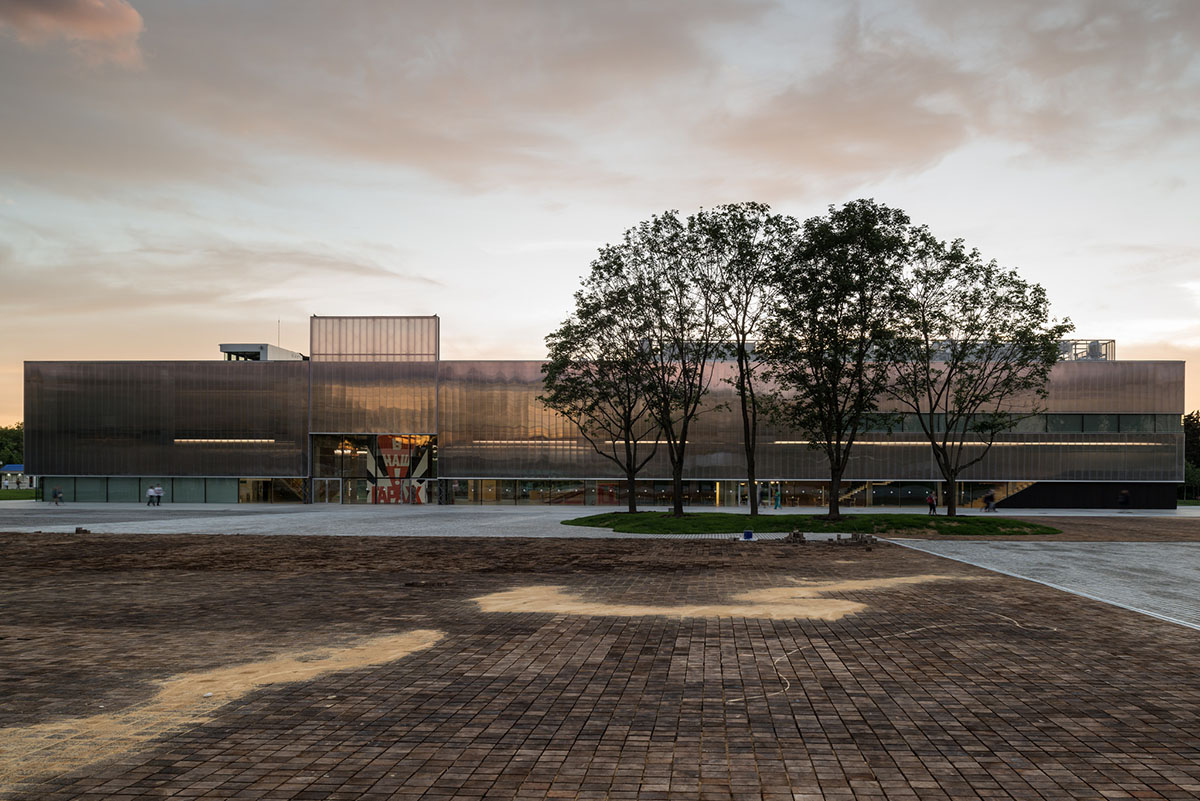
image © Yuri Palmin
Office For Metropolitan Architecture (OMA) completed Garage Museum of Contemporary Art in the city of Moscow, Russia. The project is a renovation of the 1960s Vremena Goda (Seasons of the Year) restaurant, a prefabricated concrete pavilion which has been derelict for more than two decades. OMA's design for the 5,400 m2 building includes exhibition galleries on two levels, a creative center for children, shop, café, auditorium, offices, and roof terrace. The design preserves original Soviet-era elements, including a mosaic wall, tiles, and brick, while incorporating a range of innovative architectural and curatorial devices. Garage Museum of Contemporary Art has been opened to the public in June, 2015.
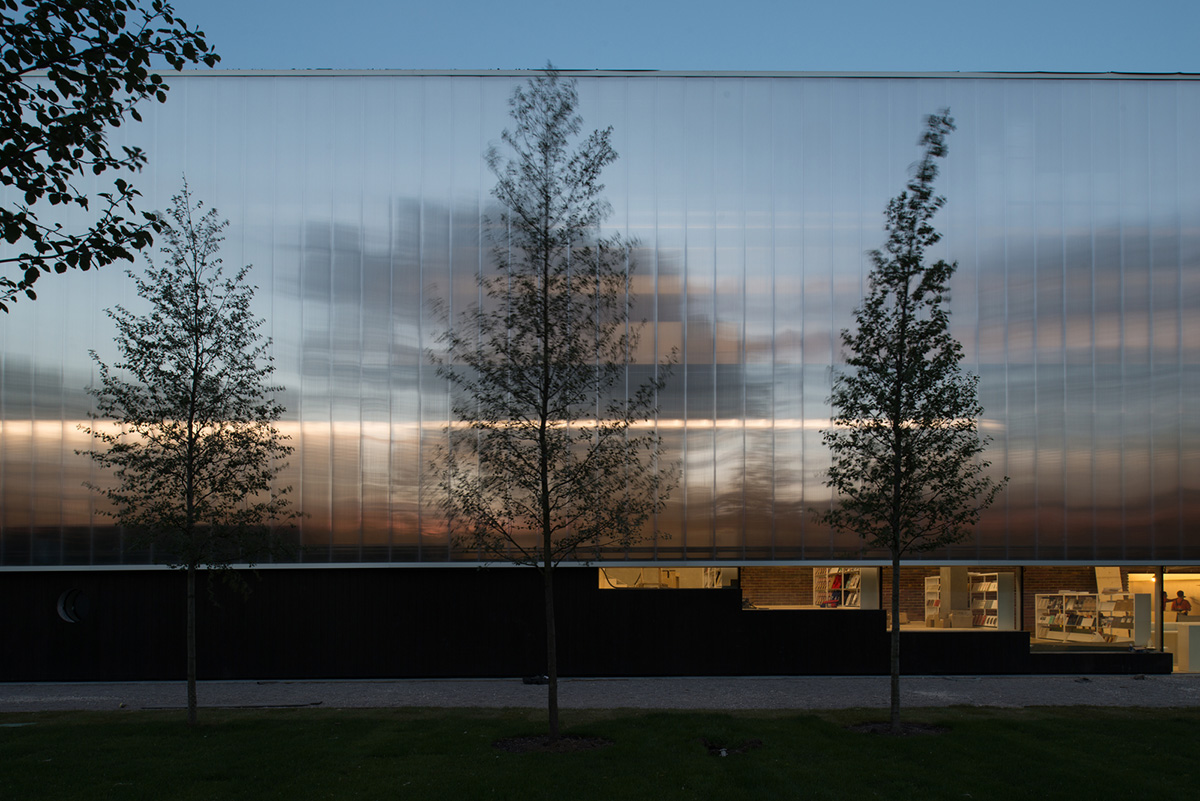
image © Yuri Palmin
The building was founded in 2008 at the Konstantin Melnikov designed Bakhmetievsky Bus Garage. Relocating from a semi-industrial neighborhood in the north of Moscow to one of the city's best known public spaces (Gorky Park), Garage will address a much larger and diversified audience.

image © Yuri Palmin
OMA's design approach emphasizes the historicity of Soviet era and the studio states that ''the building offers two levels of unobstructed open space that will be dedicated to exhibitions, organized around two circulation and service cores. museum programs occupy three levels, adapting to spatial and structural possibilities of the existing structure. The more fragmented spaces in the North Eastern part of the pavilion surrounding the main core primarily accommodate education and research programs. The large open spaces in the South Western part are dedicated to exhibitions, projects and events''
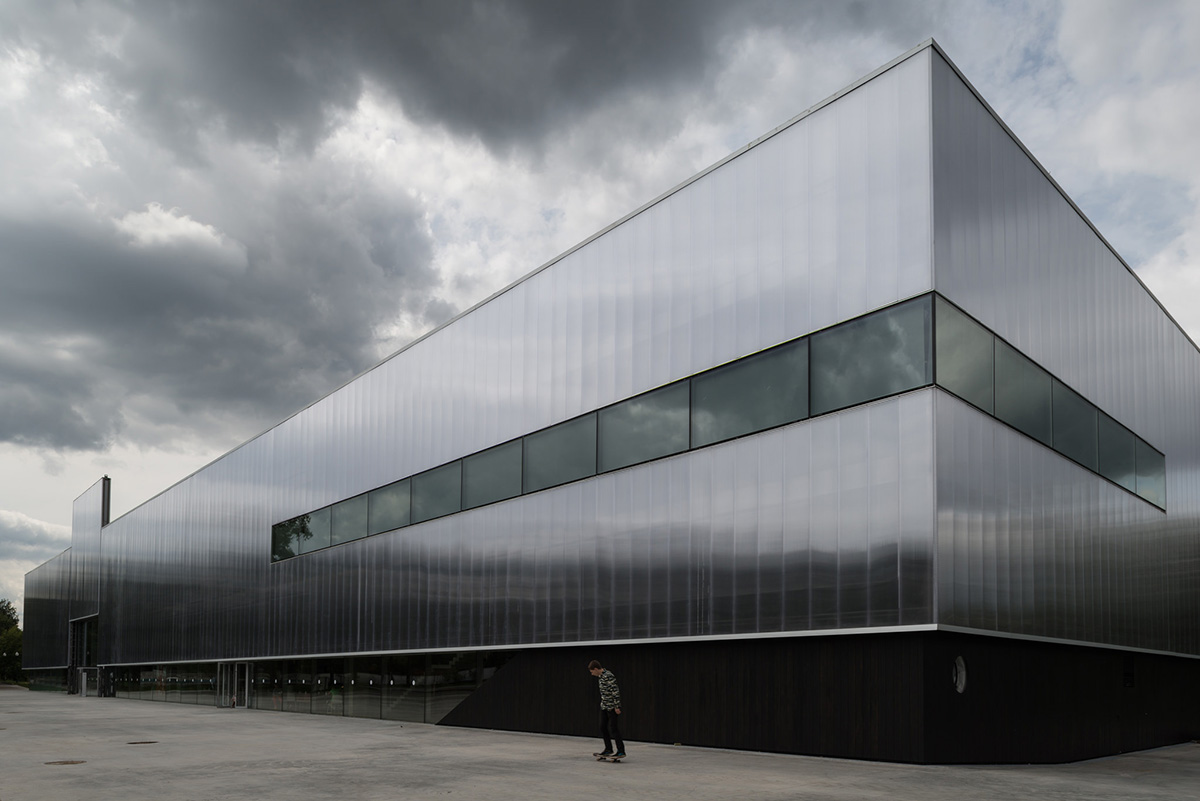
image © Yuri Palmin
The building offers a wide range of interior conditions for the exhibition of art beyond the ubiquitous “white cube” and provides innovative curatorial possibilities, such as hinged white walls that can be folded down from the ceiling. They provide an instant white cube when an exhibition demands a more neutral environment, while the existing walls retain their brick and green tile cladding.
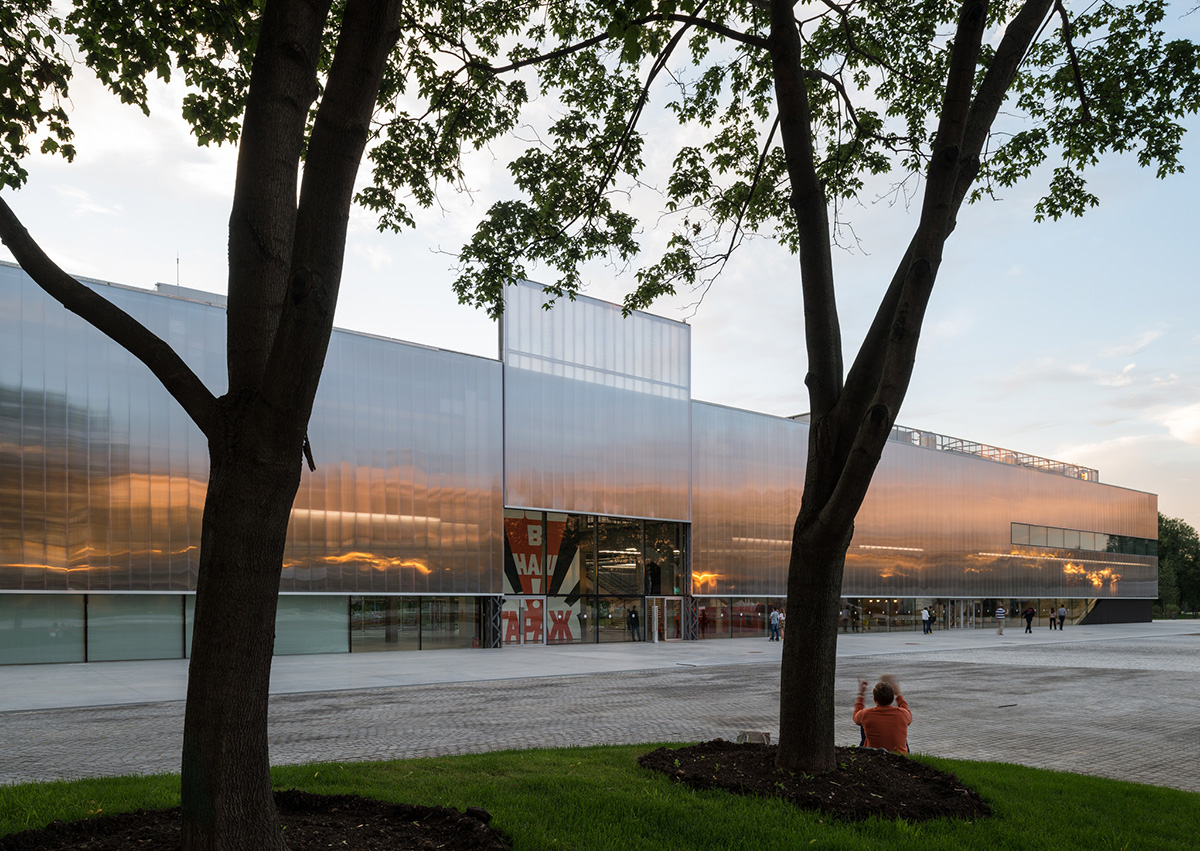
image © Yuri Palmin
A 9x11-metre opening in the floor of the upper level creates a double height space (10 metres) for the lobby, allowing extra-large sculptures to be displayed. A public loop on the lower level will connect the bookshop, mediatheque, auditorium and a café, which is envisioned as an informal living room with Soviet era furniture.
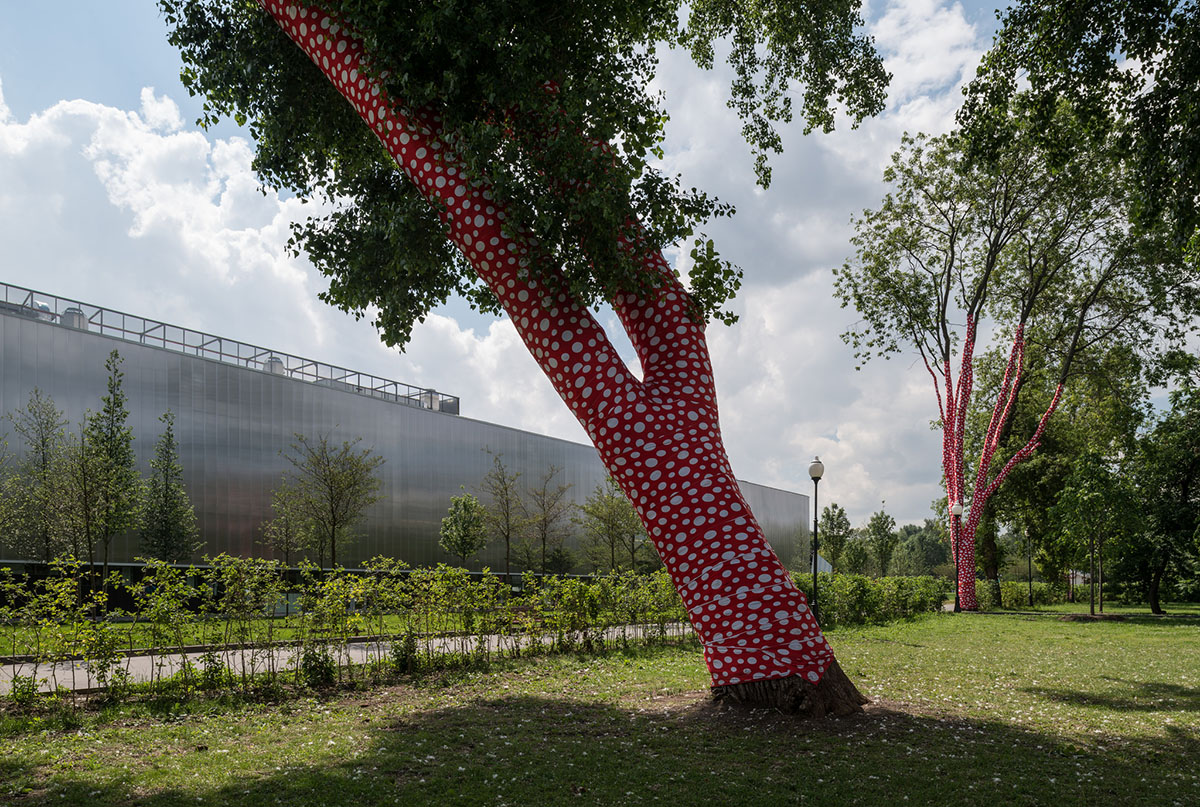
image © Yuri Palmin
The existing concrete structure is enclosed with a new translucent double layer polycarbonate façade that will accommodate a large portion of the building's ventilation equipment, allowing the exhibition spaces to remain free. The facade is lifted 2.25 metres from the ground in order to visually reconnect the pavilion's interior to the park. The entrance to Garage Gorky Park is marked by two large facade panels that slide upwards to frame the art in the lobby's double height space and provide a view through the building from the park.
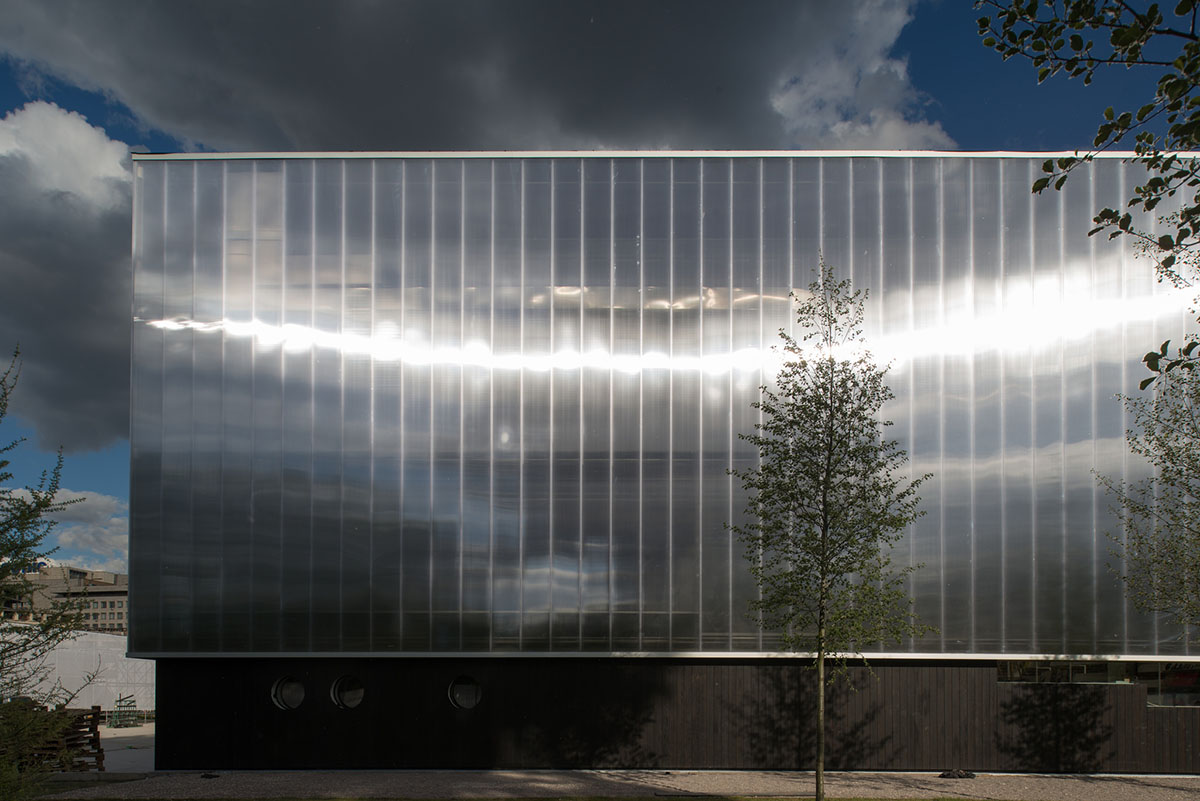
image © Yuri Palmin
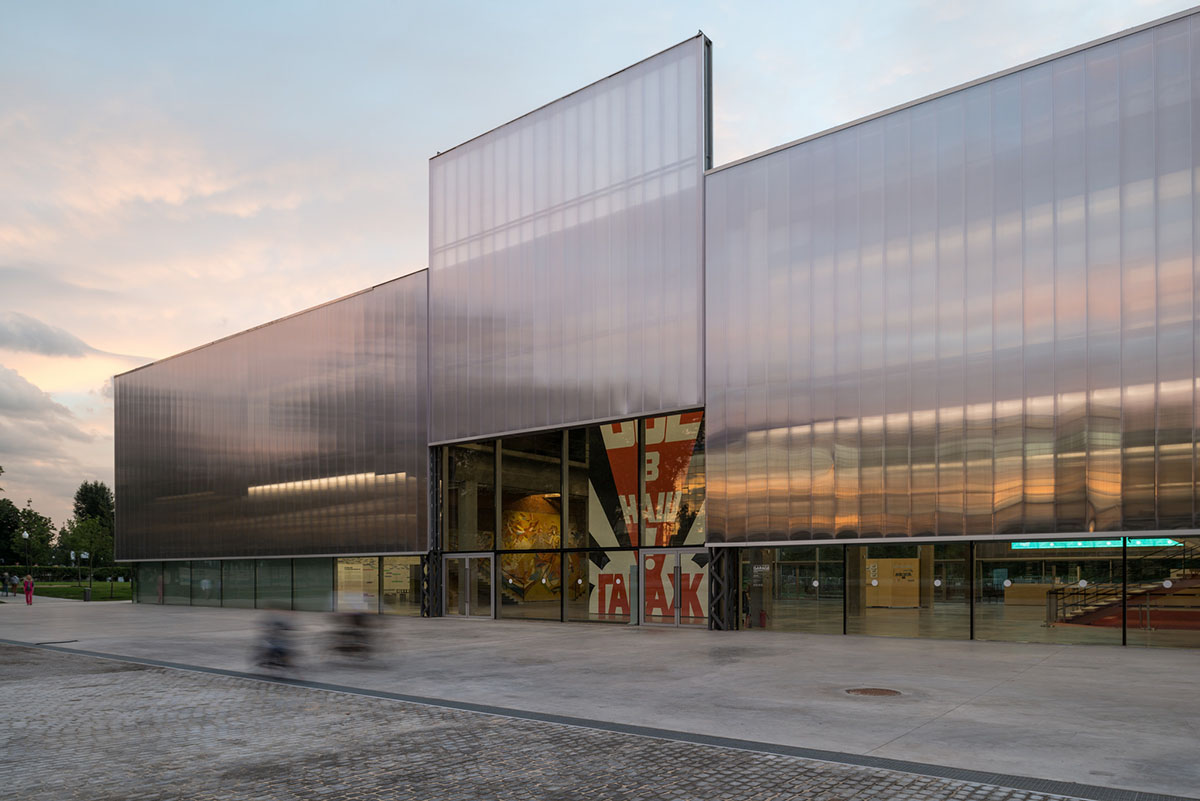
image © Yuri Palmin

image © Yuri Palmin

image © Yuri Palmin
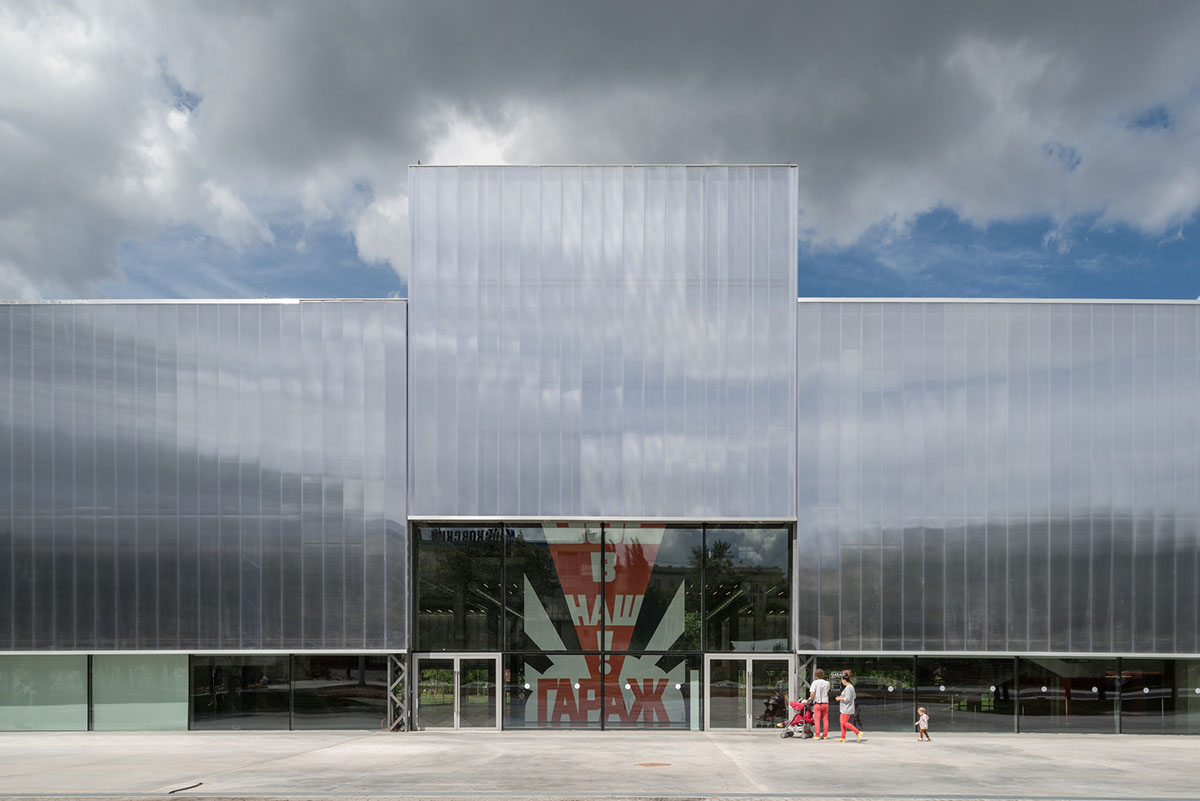
image © Yuri Palmin

image © Yuri Palmin

image © Yuri Palmin
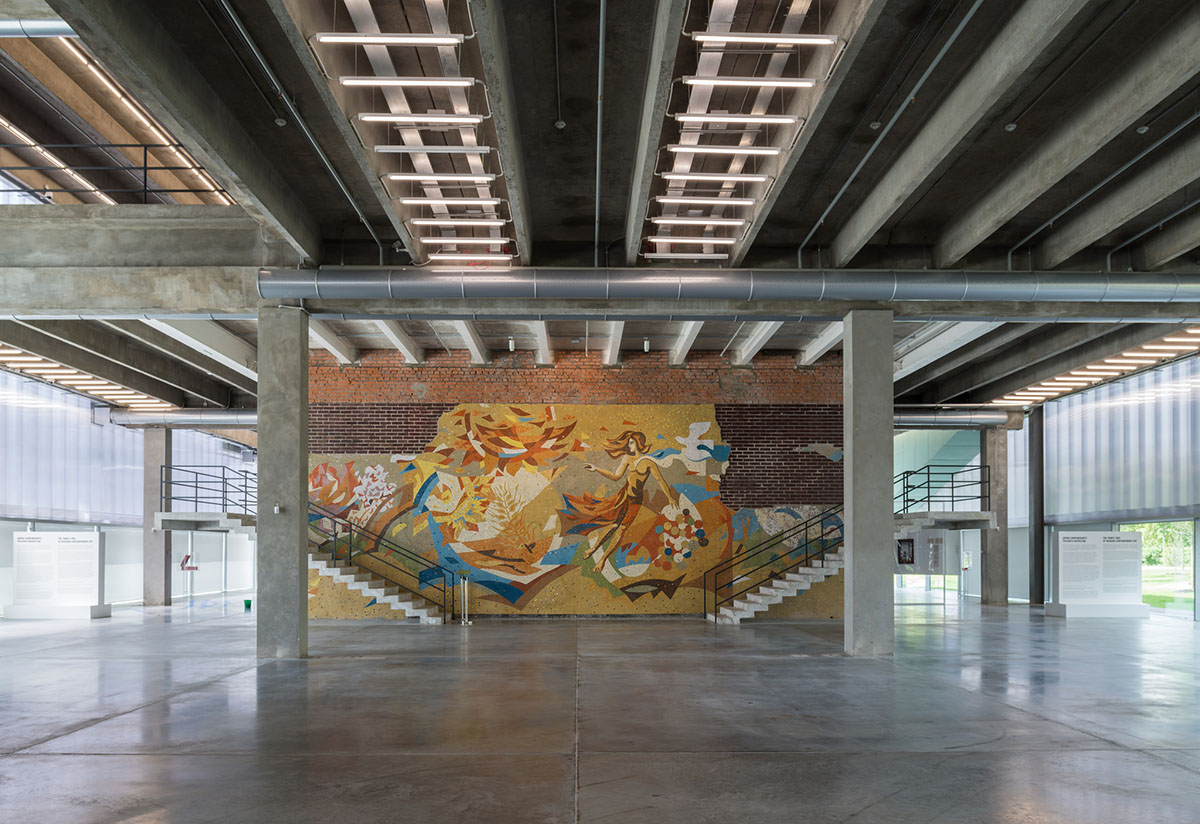
image © Yuri Palmin
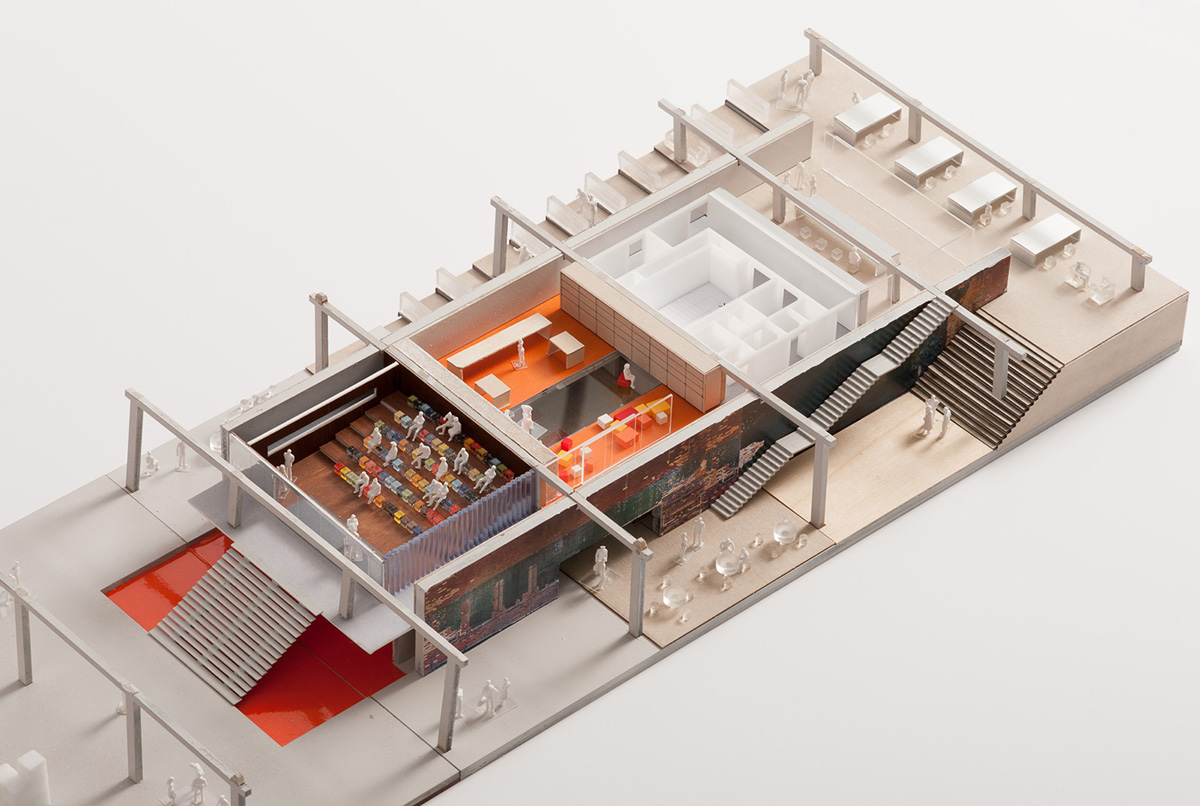
image © OMA
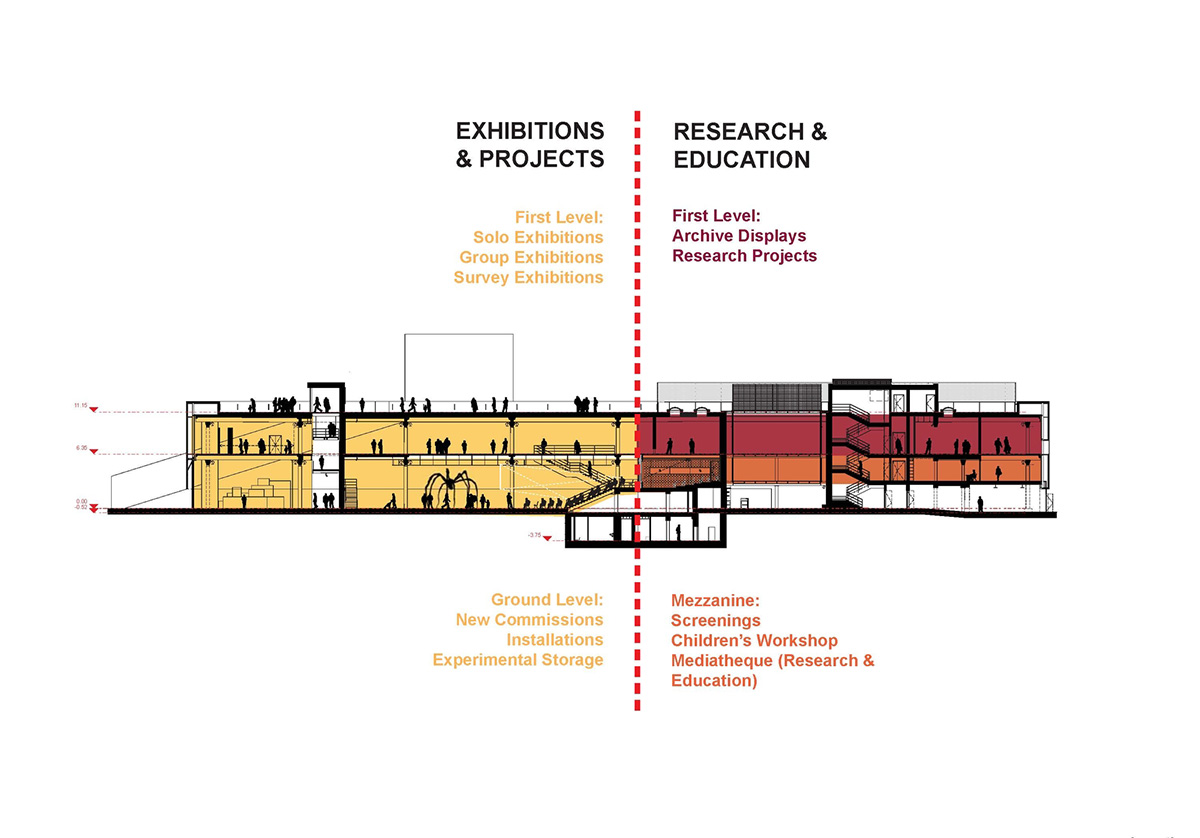
image © OMA
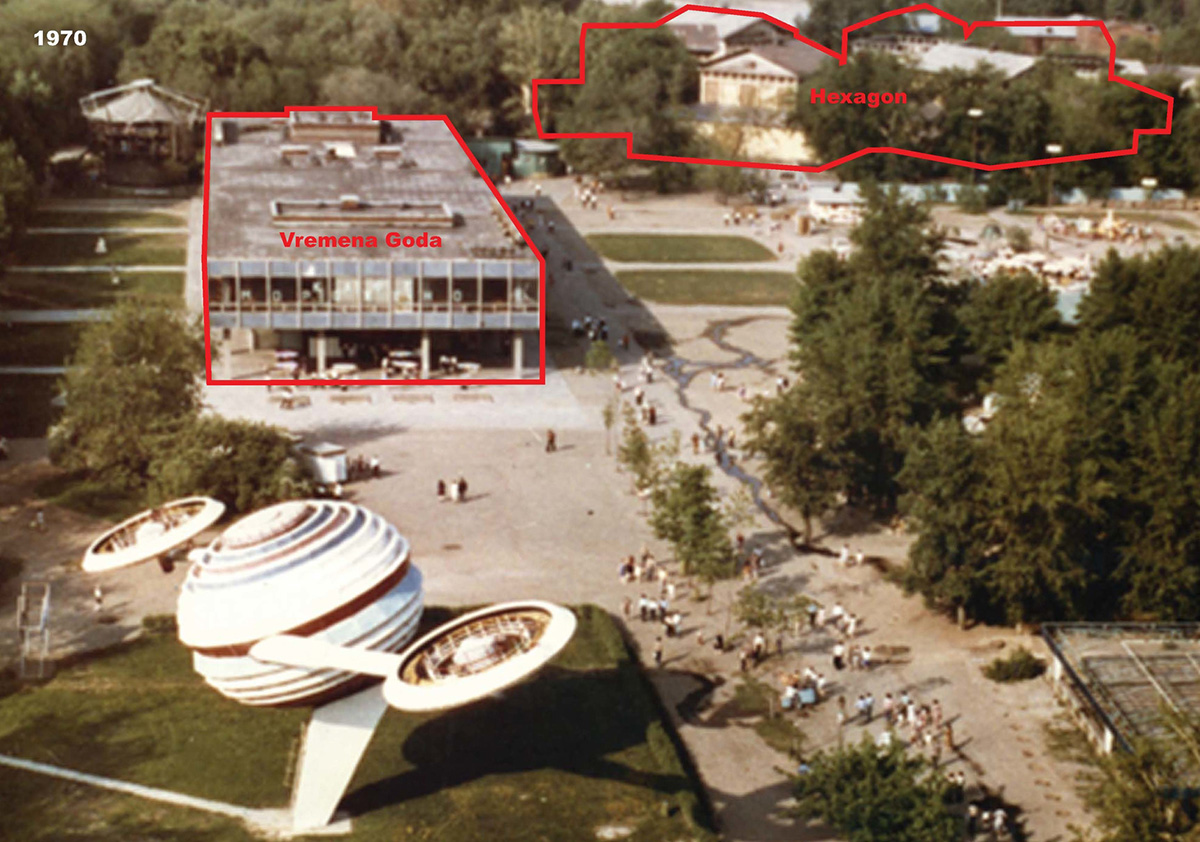
image © OMA
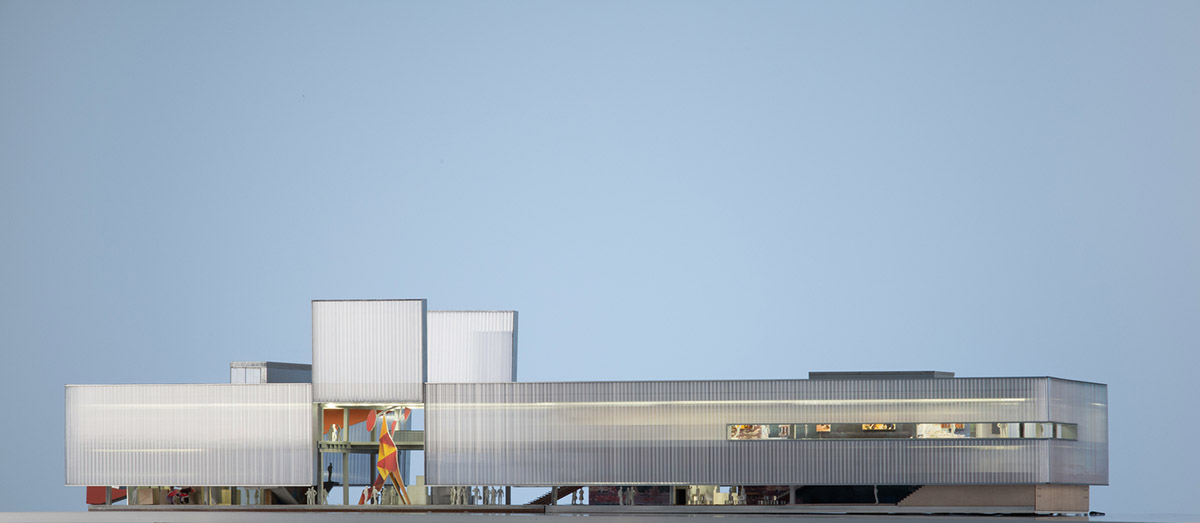
image © OMA
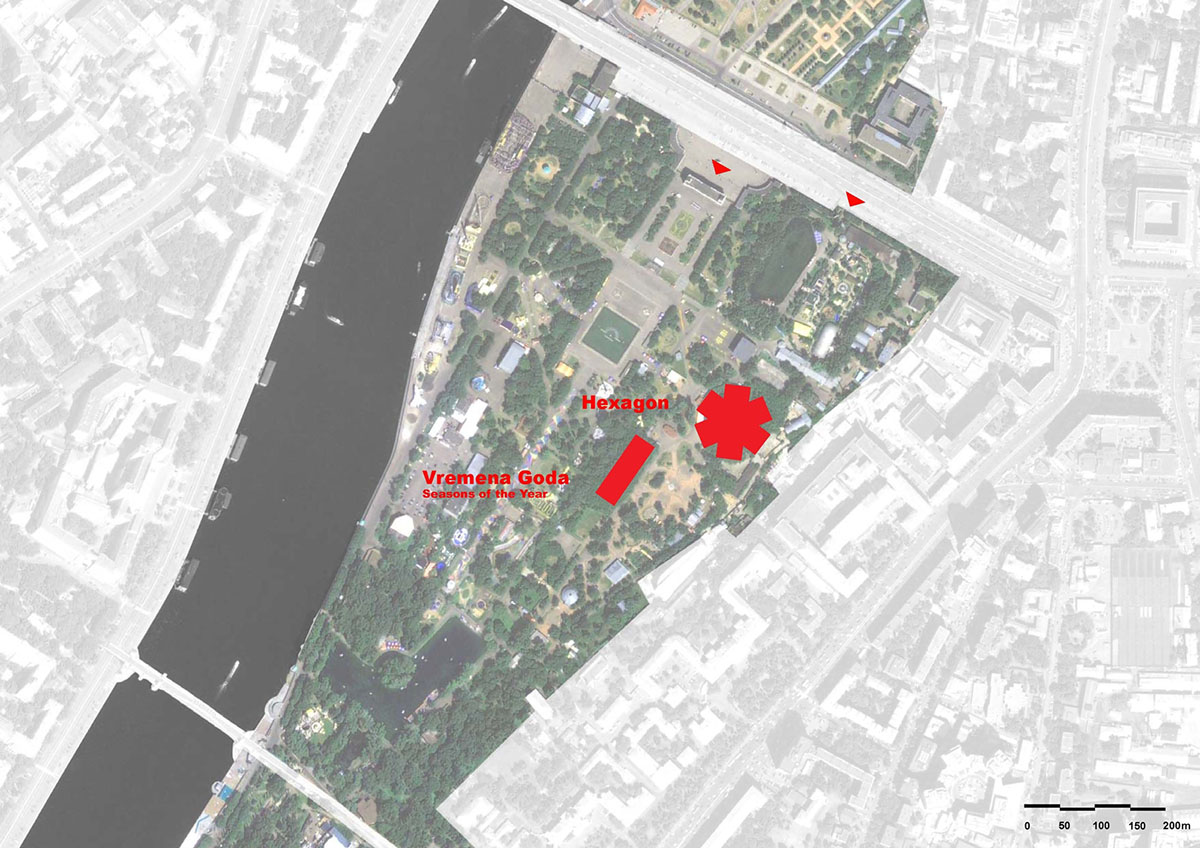
image © OMA
Project Facts
Location: Moscow, Russia
Clients: Garage Center for Contemporary Culture, İris Foundation
Year: 2011-2015
Status: Completed
Program: Museum/ Gallery
Partner: Rem Koolhaas
Project architect: Ekaterina Golovatyuk
Team
Associate: Chris van Duijn
Team: Giacomo Cantoni, Marek Chytil, Nathan Friedman, Yashin Kemal, Cristian Mare, John Paul Pacelli, Federico Pompignoli, Cecilia del Pozo, Timur Shabaev, Boris Tikvarski
Collaborators
Garage architect: Form
